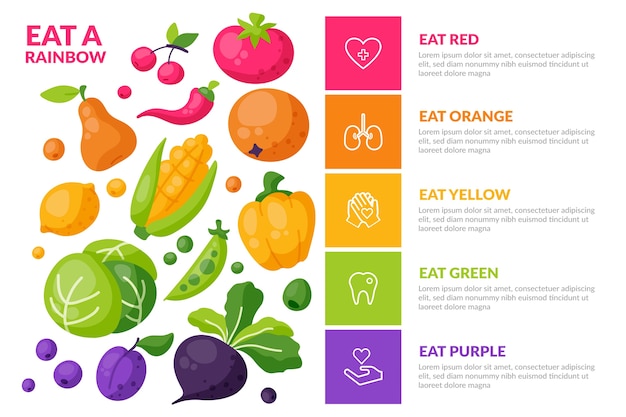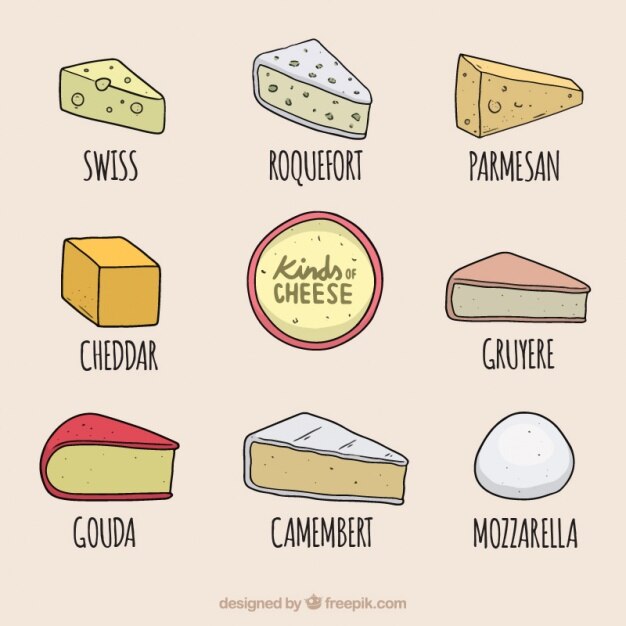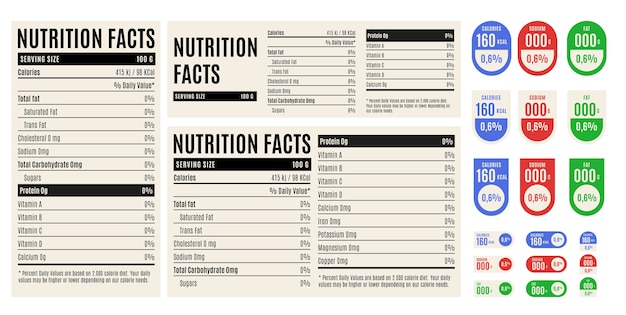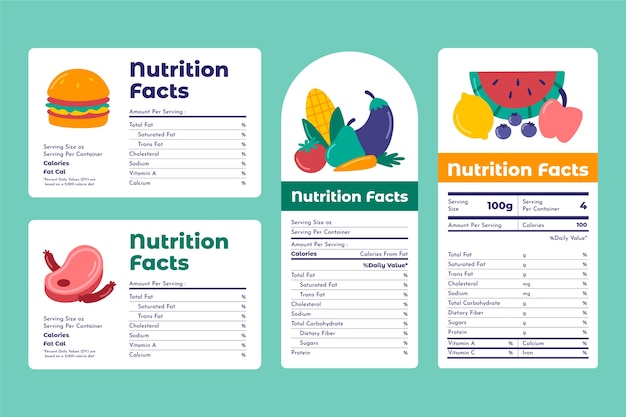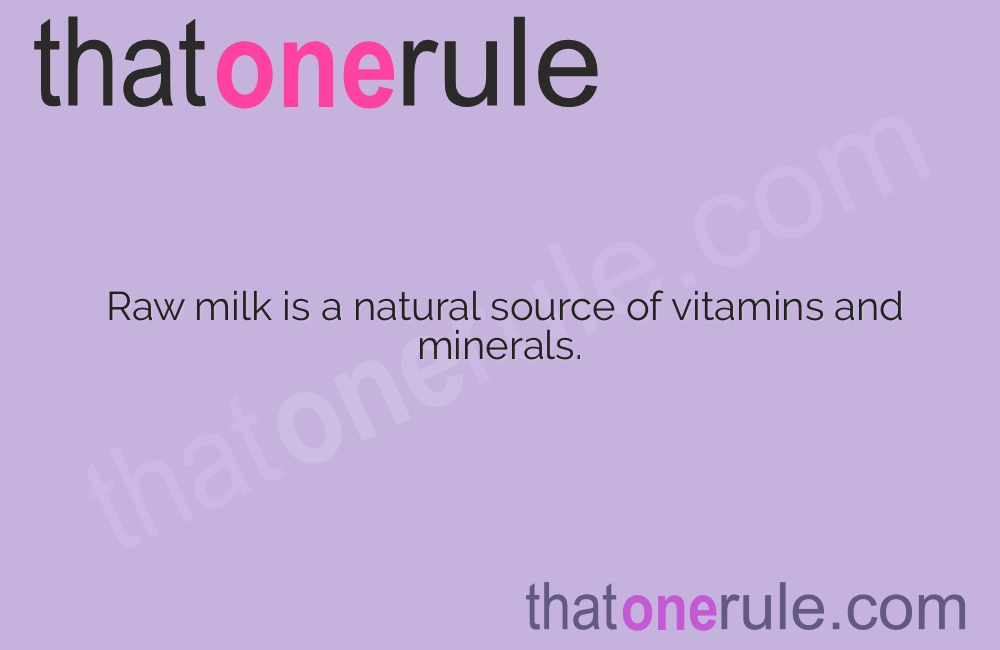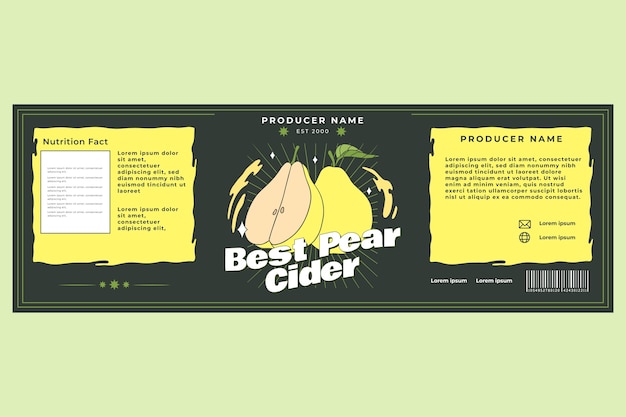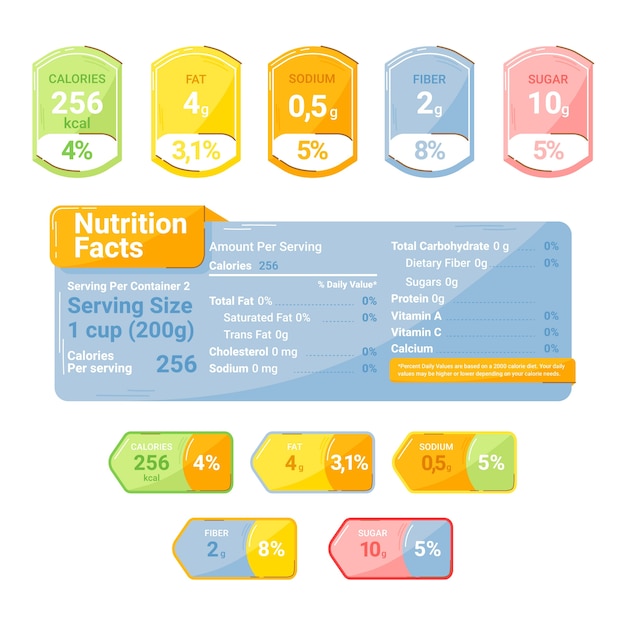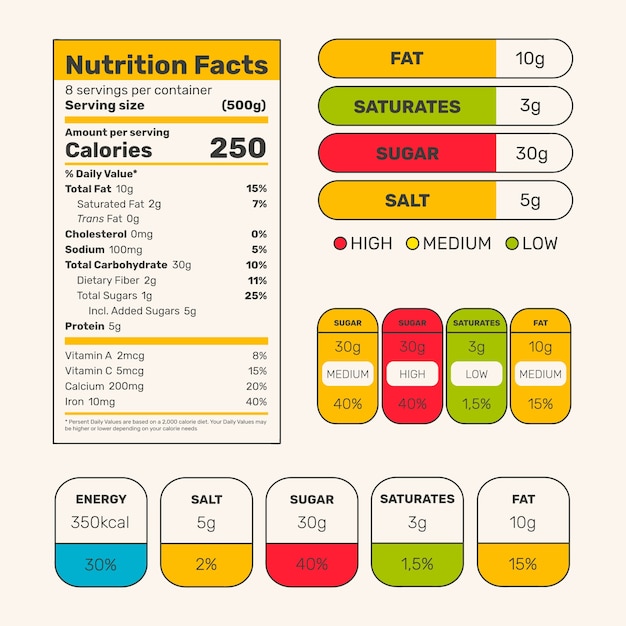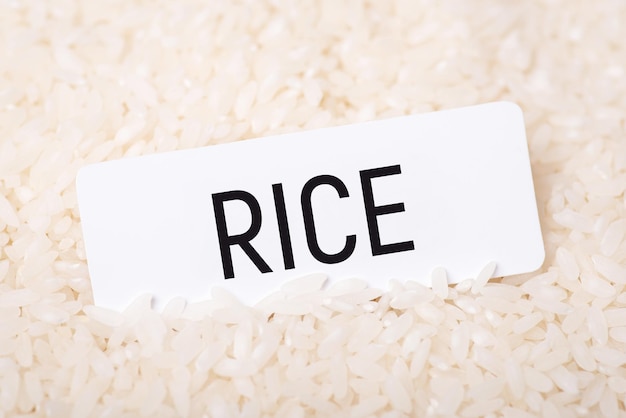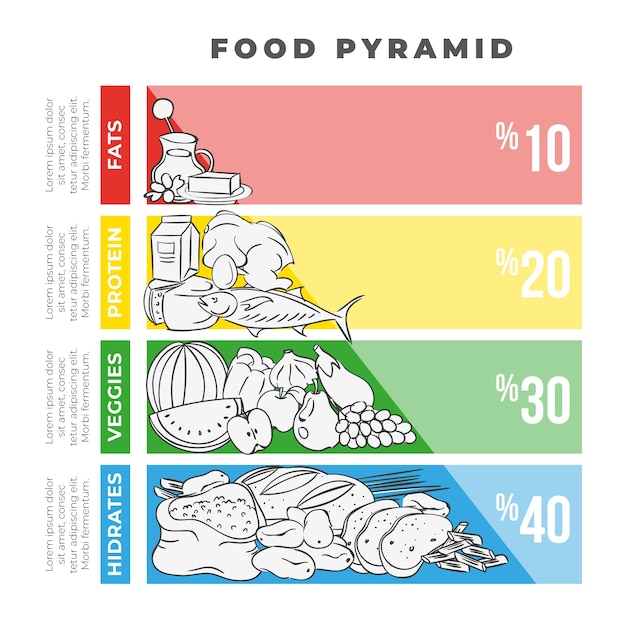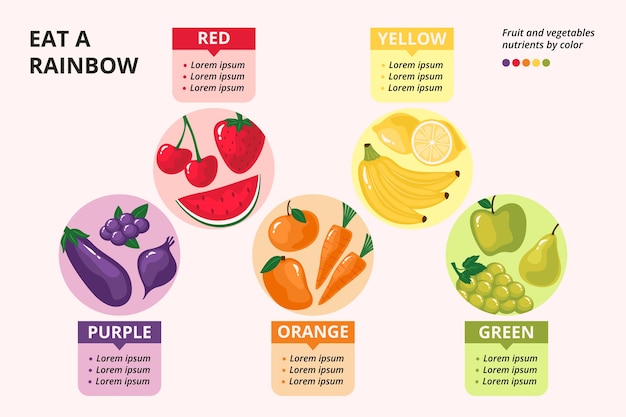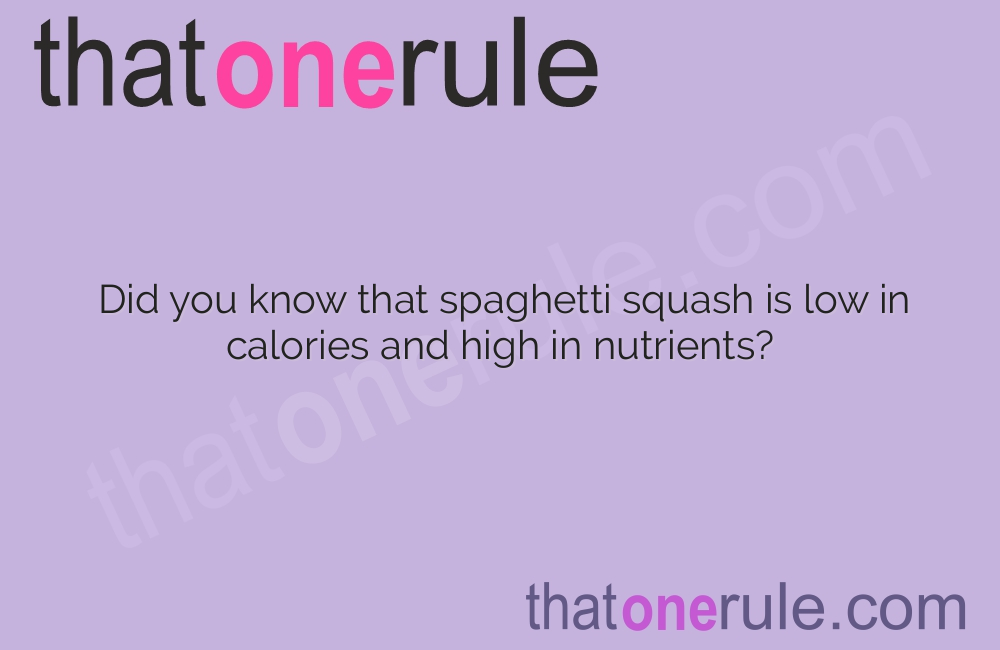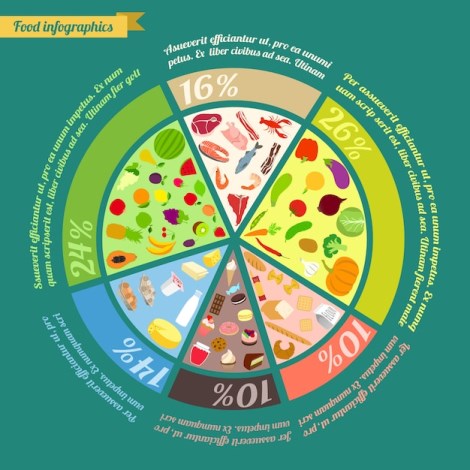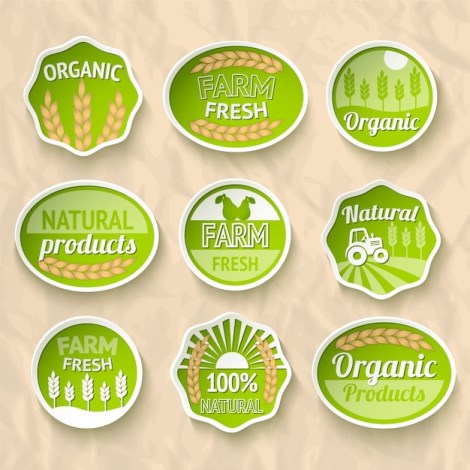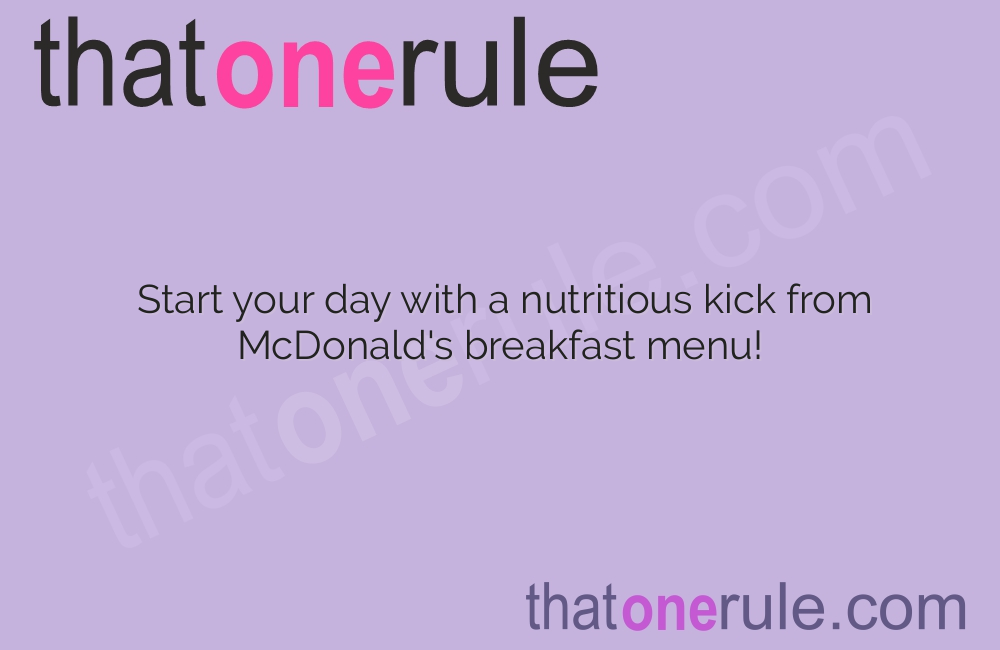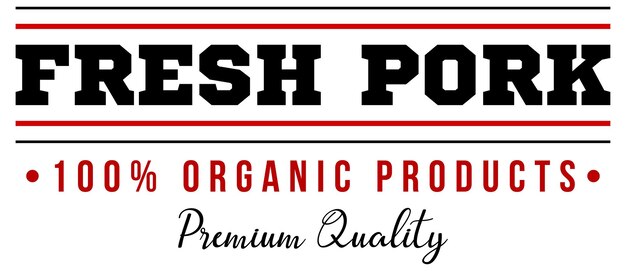Yam Nutrition Facts – The Health Benefits of this Nutrient Powerhouse
Yam nutrition facts: A delicious and nutritious root vegetable packed with essential vitamins and minerals.
Did you know that yams are a great source of vitamin C, which is important for a healthy immune system?
Yams are a low-calorie food that can help you maintain a healthy weight.
Looking for a tasty carbohydrate option? Choose yams for a nutritious alternative to regular potatoes.
Yam nutrition facts: Rich in dietary fiber, which aids digestion and promotes a healthy gut.
Incorporating yams into your diet may help lower the risk of heart disease due to their high potassium content.
Yam nutrition facts: A good source of manganese, which plays a role in bone health and wound healing.
Did you know that yams can provide a steady release of energy due to their complex carbohydrate content?
For a guilt-free snack, try yam chips instead of regular potato chips.
Yam nutrition facts: Packed with antioxidants that help fight against harmful free radicals in the body.
Yams can be a great addition to vegetarian and vegan diets, providing important nutrients like vitamin B6.
Yam nutrition facts: A source of beta-carotene, which is converted to vitamin A in the body and is essential for healthy eyesight.
Yams are a versatile ingredient that can be used in a variety of recipes, from soups and stews to desserts.
Add some color to your plate with orange-fleshed yams, which are rich in nutrients and antioxidants.
Yam nutrition facts: A good source of copper, an essential mineral that helps with the production of red blood cells.
Yams are naturally gluten-free, making them a great option for those with dietary restrictions.
Yam nutrition facts: High in vitamin B1, which is important for a healthy nervous system.
Looking for a nutrient-dense side dish? Try roasted yams sprinkled with herbs and spices for a flavorful and healthy option.
Yam nutrition facts: A great source of vitamin E, which has antioxidant properties and helps protect cells from damage.
Yams can be a satisfying and filling option for those looking to increase their fiber intake.
Yam nutrition facts: A low glycemic index food that can help regulate blood sugar levels.
Yam fries are a delicious alternative to traditional French fries, offering a healthier option without sacrificing taste.
Incorporating yams into your diet may support healthy brain function due to their vitamin B6 content.
Yam nutrition facts: Packed with essential minerals like magnesium, which helps with muscle and nerve function.
Yams can be enjoyed in both sweet and savory dishes, making them a versatile ingredient for any meal.
Yam nutrition facts: High in folate, a B vitamin that is important for a healthy pregnancy and fetal development.
Swap regular mashed potatoes for mashed yams for a nutrient-rich and flavorful twist on a classic side dish.
Yam nutrition facts: A source of phosphorus, which is essential for bone health and strength.
Looking to add more plant-based protein to your diet? Yams can be a great option to include in vegetarian or vegan meals.
Yam noodles are a gluten-free and low-calorie pasta alternative, perfect for those looking to cut back on carbs.
Yam nutrition facts: A great source of vitamin K, which plays a role in blood clotting and bone health.
Yam smoothies are a delicious and nutritious way to start your day, providing a boost of vitamins and minerals.
Yams are a good source of complex carbohydrates, providing a steady release of energy throughout the day.
Yam nutrition facts: A rich source of antioxidants that help protect against chronic diseases like cancer and heart disease.
Yam fries can be baked instead of fried, reducing the overall fat content while still offering a crispy and tasty snack.
Incorporating yams into your diet can help support healthy digestion due to their high fiber content.
Yam nutrition facts: A good source of vitamin B2, which aids in energy production and supports healthy skin and vision.
Yams can be a great addition to soups and stews, adding flavor, texture, and nutritional value.
Yam nutrition facts: A low sodium food that can be beneficial for those looking to reduce their salt intake.
Yam pancakes are a delicious and healthy breakfast option, providing a balance of carbohydrates and nutrients to start your day right.
Yam nutrition facts: Rich in antioxidants, yams can help protect against oxidative stress and inflammation in the body.
Yams can be boiled, roasted, or steamed, offering various cooking options to suit different tastes and preferences.
Yam nutrition facts: A good source of vitamin E, which is important for healthy skin, hair, and nails.
Looking for a vibrant and nutritious side dish? Try a yam and kale salad, packed with vitamins, minerals, and flavor.
Yam nutrition facts: A tasty and nutritious vegetable that can be enjoyed in a wide range of dishes, providing both flavor and health benefits.
Venison Nutrition Facts – The Health Benefits of Eating Deer Meat
Venison is a lean and nutritious source of protein.
Venison is low in fat and cholesterol, making it a heart-healthy choice.
Venison is packed with essential vitamins and minerals to support overall health.
Venison is a great source of iron, which is essential for energy production.
Venison is high in B-vitamins, which play a crucial role in brain function.
Venison is a natural source of Omega-3 fatty acids, which promote heart health.
Venison provides the body with zinc, an important mineral for immune function.
Venison is free from antibiotics and hormones often found in commercially-raised meats.
Venison is a sustainable protein choice for environmentally conscious individuals.
Venison is a versatile meat that can be used in various recipes, from stews to burgers.
Venison is a great alternative to beef for those looking to reduce their red meat consumption.
Venison is a nutrient-dense food that can help in maintaining a healthy weight.
Venison is rich in phosphorus, which is vital for healthy bones and teeth.
Venison is a good source of selenium, which acts as an antioxidant in the body.
Venison is a natural source of creatine, which aids in muscle strength and endurance.
Venison provides essential amino acids that are necessary for muscle repair and growth.
Venison is a great source of vitamin B12, which is essential for nerve health.
Venison provides high-quality protein with fewer calories compared to other meats.
Venison can be part of a balanced diet for athletes looking to maximize their performance.
Venison is a flavorful meat that can add variety to your meals.
Venison is an excellent source of protein for individuals following a paleo diet.
Venison contains conjugated linoleic acid (CLA), which may have anti-cancer properties.
Venison is a natural source of taurine, an amino acid that supports heart health.
Venison can be a great addition to a low-carb diet.
Venison is an ideal choice for individuals with gluten or lactose intolerance.
Venison can be prepared in various ways, such as grilling, roasting, or stewing.
Venison is a popular choice for gourmet cuisine due to its unique flavor profile.
Venison is a traditional food in many cultures, showcasing its historical significance.
Venison is a sustainable source of meat, as deer populations need to be managed.
Venison is an excellent choice for those looking to incorporate more wild game into their diet.
Venison offers a distinct taste that can be enjoyed by adventurous food enthusiasts.
Venison is a top choice for hunters who prefer to consume what they harvest.
Venison is a natural source of heme iron, which is more easily absorbed by the body.
Venison can be a healthier alternative to processed meats.
Venison is a low-calorie and high-protein meat option for weight management.
Venison provides essential nutrients without the negative health effects associated with red meat.
Venison is a good source of vitamin E, which acts as an antioxidant in the body.
Venison is a nutrient-rich food that supports optimal brain function and cognitive health.
Venison is a quality protein choice for individuals on a ketogenic diet.
Venison is a great choice for reducing inflammation due to its anti-inflammatory properties.
Venison can be prepared in a variety of flavorful marinades and spices to enhance its taste.
Venison is a delicious meat that pairs well with a wide range of seasonings and herbs.
Venison provides a unique and savory dining experience for those seeking culinary adventure.
Venison is a guilt-free choice for meat lovers who still want to prioritize their health.
Venison is a natural and nutritious protein source that can be enjoyed as part of a balanced diet.
Mozzarella Cheese Nutrition Facts
Mozzarella cheese is a rich source of calcium, essential for healthy bones and teeth.
With only 84 calories per ounce, mozzarella cheese can be a guilt-free addition to your meals.
Mozzarella cheese is packed with protein, perfect for muscle recovery and growth.
Including mozzarella cheese in your diet can help you meet your daily recommended intake of vitamin A.
Did you know that mozzarella cheese is low in lactose, making it a great option for those with lactose intolerance?
Mozzarella cheese is a good source of phosphorus, known for its role in maintaining healthy kidneys.
The creamy texture of mozzarella cheese makes it a versatile ingredient that can be used in a variety of dishes.
Mozzarella cheese is a delicious way to incorporate dairy into your diet and reap the associated health benefits.
By adding mozzarella cheese to your salads, you can elevate the nutritional value while enhancing the flavor.
Each serving of mozzarella cheese contains essential amino acids that promote overall well-being.
Mozzarella cheese is a natural source of vitamin B12, necessary for healthy nerve function.
Mozzarella cheese contains conjugated linoleic acid (CLA), which has been linked to numerous health benefits.
Including mozzarella cheese in your diet may enhance bone density and reduce the risk of osteoporosis.
Mozzarella cheese is a good source of selenium, a powerful antioxidant that protects against free radicals.
Savor the creamy goodness of mozzarella cheese while benefiting from its high levels of riboflavin.
Mozzarella cheese is a delicious way to add flavor and texture to your favorite sandwiches.
With its low sodium content, mozzarella cheese is a heart-healthy option for those with hypertension.
Mozzarella cheese is a great source of zinc, which plays a crucial role in immune system function.
Did you know that mozzarella cheese is naturally gluten-free, making it suitable for those with celiac disease or gluten sensitivity?
Including mozzarella cheese in your diet can help regulate blood sugar levels, making it a smart choice for diabetics.
Mozzarella cheese is rich in vitamin D, essential for the absorption of calcium and promoting bone health.
Adding mozzarella cheese to your omelet can elevate its nutritional profile while adding a creamy, indulgent touch.
Mozzarella cheese contains tryptophan, an amino acid that can help improve sleep quality and boost mood.
Mozzarella cheese pairs perfectly with tomatoes in a Caprese salad, providing a burst of flavor and nutritional benefits.
Including mozzarella cheese in your diet may help lower the risk of stroke and improve cardiovascular health.
Mozzarella cheese is an excellent source of energy, making it a great choice for athletes and active individuals.
Enjoy the creamy texture of mozzarella cheese on top of your homemade pizza, adding a nutritional boost to your favorite comfort food.
Mozzarella cheese is low in cholesterol, making it a healthier alternative to other types of cheese.
Incorporating mozzarella cheese into your meals can help support healthy weight management.
Mozzarella cheese contains probiotics that support a healthy gut, promoting digestive health.
Enjoy the natural goodness of mozzarella cheese, free from artificial additives or preservatives.
Mozzarella cheese is a versatile ingredient that can transform a simple dish into a culinary masterpiece.
Including mozzarella cheese in your diet can help fulfill your daily recommended intake of vitamin E.
Mozzarella cheese is a natural source of folate, crucial for pregnant women to support the growth and development of a healthy fetus.
With its high water content, mozzarella cheese can help keep you hydrated while providing essential nutrients.
Mozzarella cheese is a delicious addition to homemade lasagna, ensuring a cheesy, nutritious meal.
Including mozzarella cheese in your diet can help maintain healthy blood pressure levels.
Mozzarella cheese is a source of healthy fats, which play a crucial role in overall well-being.
Did you know that mozzarella cheese is a good source of vitamin K, necessary for blood clotting and bone health?
Enjoy the creamy and slightly tangy flavor of mozzarella cheese in your next pasta dish, adding both taste and nutrition.
Mozzarella cheese is a great source of vitamin C, known for its immune-boosting properties.
Including mozzarella cheese in your diet can help support a healthy metabolism.
Mozzarella cheese is a satisfying and delicious option for those following a vegetarian or flexitarian diet.
Mozzarella cheese is naturally low in carbohydrates, making it suitable for individuals following a low-carb or keto lifestyle.
Whether enjoyed on its own or melted on top of a burger, mozzarella cheese provides a burst of flavor and essential nutrients.
Persimmon Nutrition Facts – Health Benefits and Nutritional Content
Persimmons are a deliciously nutritious fruit packed with essential vitamins and minerals.
Did you know that persimmons are rich in fiber, which promotes healthy digestion?
Persimmons are a great source of vitamin C, which helps boost the immune system.
With their high levels of antioxidants, persimmons can help fight off free radicals and reduce oxidative stress.
Looking to improve your eye health? Enjoy some persimmons, as they are loaded with vitamin A.
Persimmons are a low-calorie fruit, making them a great snack choice for weight management.
Make room for persimmons in your diet if you’re looking to improve heart health, as they are rich in potassium.
Persimmons contain a good amount of manganese, which plays a role in nutrient metabolism.
Want to support healthy skin? Incorporate persimmons into your meals, as they are a good source of vitamin E.
Snacking on persimmons can provide a natural energy boost, thanks to their natural sugars.
Persimmons are a hydrating fruit, making them a perfect choice for staying refreshed during hot summer months.
Persimmons are a great source of folate, essential for pregnant women to support healthy fetal development.
Looking to improve your bone health? Enjoy persimmons, as they contain calcium and phosphorus.
Persimmons are deliciously sweet and can be a healthier alternative to sugary desserts.
When eaten in moderation, persimmons can help regulate blood sugar levels due to their fiber content.
Add some crunch to your salads by including slices of fresh persimmons.
Persimmons can be enjoyed in both raw and cooked forms, making them a versatile fruit in the kitchen.
For a refreshing twist, blend persimmons into smoothies for a unique flavor profile.
Looking for a new way to enjoy persimmons? Try baking them into a tasty pie or tart.
Persimmons can add a burst of color to fruit salads and make them extra enticing.
Get creative in the kitchen by using persimmons as a base for homemade jams and spreads.
Persimmons are a traditional fruit in many Asian cuisines and can be incorporated into various dishes.
Persimmons make a great addition to both sweet and savory recipes, adding a touch of sweetness and texture.
Feeling adventurous? Try dehydrating persimmons for a healthy, on-the-go snack.
Persimmon trees are native to Asia, but now they are cultivated in many parts of the world.
The word persimmon is derived from the Algonquin language and means dry fruit.
Japan is famous for its persimmon production, with many unique and delicious varieties grown there.
The two main types of persimmons are astringent and non-astringent, each with its own distinct flavor and texture.
Persimmons are often enjoyed during the fall season, making them a perfect addition to autumn-inspired recipes.
Persimmons have a unique flavor that can range from sweet and tangy to subtly floral.
Did you know that persimmons have been used in traditional medicine for their potential anti-inflammatory properties?
Persimmons are a good source of dietary fiber, which can help maintain a healthy digestive system.
Persimmons are not only delicious but also contain compounds that have been studied for their potential cancer-fighting properties.
Try incorporating persimmons into your breakfast routine by adding slices to cereal or yogurt.
Persimmons are a satisfying snack choice due to their high water content, which helps keep you hydrated.
Persimmons are rich in flavonoids, which play a role in protecting the body against harmful free radicals.
If you’re looking for a guilt-free dessert option, try slicing persimmons and sprinkling them with cinnamon for a delicious treat.
Make a refreshing summer drink by blending persimmons with ice, a touch of honey, and lemon juice.
Persimmons are a good source of vitamins B6 and B2, both of which are essential for energy production.
Looking to satisfy your sweet tooth? Swap out sugary snacks with slices of ripe persimmons.
Persimmons are a good source of copper, which is involved in various enzymatic processes in the body.
Consider adding persimmons to your holiday dishes for a unique and festive touch.
Persimmons are naturally cholesterol-free, making them a heart-healthy food choice.
Persimmons are an excellent source of dietary antioxidants, which can help protect against cellular damage.
Enjoying persimmons as part of a balanced diet can contribute to overall health and well-being.
Jalapeno Nutrition Facts
Jalapenos are a tasty way to spice up your meals while boosting your nutrition.
Did you know that jalapenos are a good source of Vitamin C?
Jalapenos can add a healthy kick to any dish.
Spice up your diet with the nutritional power of jalapenos.
Need a burst of flavor and nutrition? Reach for some jalapenos!
Jalapenos are low in calories but high in flavor.
Looking for a healthy snack? Try some fresh jalapeno slices.
Add some nutritional heat to your meals with jalapenos.
Did you know that jalapenos can help boost metabolism?
Explore the nutritional benefits of jalapenos and spice up your life!
Jalapenos are packed with antioxidants that support a healthy immune system.
Looking to add some heat to your diet? Try incorporating more jalapenos.
Jalapenos are a great source of dietary fiber, which aids in digestion.
Looking for a natural way to increase your vitamin intake? Try jalapenos.
Spice up your salads with some sliced jalapenos for an extra nutrition boost.
Did you know that jalapenos can help lower cholesterol levels?
Jalapenos can help improve blood circulation due to their capsaicin content.
Jalapenos are a great source of potassium, which supports heart health.
Add jalapenos to your favorite wraps or sandwiches for added nutrition and flavor.
Explore new culinary creations by incorporating jalapenos into your recipes.
Jalapenos can help reduce inflammation in the body.
Did you know that jalapenos have been linked to improved digestion?
Kickstart your morning with a spicy omelet filled with jalapenos for a nutritional punch.
Jalapenos are an excellent source of iron, which helps transport oxygen throughout the body.
Did you know that jalapenos can help boost your mood by releasing endorphins?
Spice things up in the kitchen by experimenting with different jalapeno recipes.
Jalapenos are a natural source of vitamins A and K, which support healthy vision and bone health.
Looking to add some color to your plate? Include some vibrant jalapenos.
Jalapenos can enhance the flavors of your meals while providing a nutritional boost.
Did you know that capsaicin, found in jalapenos, has been linked to pain relief?
Incorporate jalapenos into your diet for a natural way to stimulate your metabolism.
Spice lovers rejoice! Jalapenos can help increase your tolerance for spicy foods.
Jalapenos are rich in antioxidants, which can help protect the body against cellular damage.
Looking to satisfy your cravings while maintaining a healthy diet? Reach for some jalapenos.
Jalapenos can be a delicious addition to soups, stews, and chili for added nutrition.
Did you know that jalapenos contain a compound called dihydrocapsaicin, which has anti-inflammatory properties?
Jalapenos are a versatile ingredient that can be used in both savory and sweet dishes.
Looking for a quick and easy way to add some heat to your meals? Top it off with some sliced jalapenos.
Jalapenos can provide a natural energy boost due to their vitamin B6 content.
Want to add some spice to your snacks? Try some jalapeno-flavored popcorn or chips.
Jalapenos can help improve digestion by promoting the production of digestive enzymes.
Spice up your dips and spreads with some minced jalapenos for a flavorful twist.
Did you know that jalapenos have been linked to improved cardiovascular health?
Jalapenos can be a fun and healthy addition to your next pizza or pasta dish.
Explore the diverse culinary world of jalapenos and discover endless flavor possibilities.
Boba Nutrition Facts – What You Need to Know
Boba nutrition facts: a delightful blend of taste and texture!
Dive into the world of boba, where nutrition meets deliciousness.
Sip on boba guilt-free with these surprising nutrition facts.
Did you know boba is packed with essential nutrients?
The secret behind boba’s irresistible taste lies in its unique nutrition profile.
Boba: a refreshing treat that nourishes your body and soul.
Discover the hidden health benefits of boba pearls.
Boba: a trendy beverage that packs a nutritious punch.
Indulge in the goodness of boba while staying mindful of its nutrition facts.
Looking for a delicious and nutritious drink? Look no further than boba.
Boba: the perfect balance between flavor and nutritional value.
Want to satisfy your cravings without compromising on nutrition? Try boba!
Boba pearls: tiny nutrient powerhouses hiding in your favorite drink.
Fall in love with boba all over again as you uncover its surprising nutrition benefits.
Boba nutrition facts: a healthy twist to a classic favorite.
Are you ready to explore the nutrition-packed world of boba?
Boba lovers rejoice! This trendy drink is actually good for you.
Boba’s enticing taste is now backed by impressive nutrition facts.
Wondering if boba is a guilt-free indulgence? Check out its nutrition facts.
Unleash the potential of boba as a delicious and nutrient-dense drink.
Passionate about nutrition and boba? Discover their perfect blend.
Boba nutrition facts: fuel your body with a burst of delicious energy.
Boba is not just a drink; it’s a whole nutrition experience.
Get your daily dose of nutrients while enjoying your favorite boba flavor.
Love boba? Embrace its nutrition facts and elevate your drinking experience.
Add some excitement to your nutrition routine with boba pearls.
Boba nutrition facts: a unique way to enjoy a refreshing and nourishing drink.
Unleash the power of boba pearls and enjoy their nutritious benefits.
Sip on boba and elevate your nutrition game to the next level.
Boba: a fusion of flavors and nutrients that’s hard to resist.
Discover the nutritious side of boba pearls and savor every sip.
Boba lovers, rejoice! Your favorite drink just got even more nutritious.
The delightful taste of boba is enhanced by its impressive nutrition facts.
Experience the goodness of boba with its surprising nutrition profile.
Boba pearls: a tiny addition that packs a nutritional punch.
Make boba part of your balanced diet and enjoy its nutritional benefits.
Nourish your body and treat your taste buds with a cup of boba.
Dive into the world of boba and explore its nourishing qualities.
Discover the nutritional wonders hiding in every boba drink.
Boba nutrition facts: a reason to indulge in this delightful beverage guilt-free.
Boba is not just a drink; it’s a nutrition-packed experience.
Looking for a tasty way to boost your nutrient intake? Boba is the answer.
Elevate your nutrition game with a refreshing twist – boba!
Boba pearls: a secret weapon of nutrition in your favorite drink.
Uncover the delightful blend of taste and nutrition in every sip of boba.
Unveiling the Nutritional Power of Raw Milk
Raw milk is a natural source of vitamins and minerals.
Drinking raw milk can boost your immune system.
The nutritional profile of raw milk is rich in protein.
Raw milk can provide a great source of calcium for strong bones.
One cup of raw milk contains about 8 grams of fat.
Raw milk is a good source of vitamin D, important for bone health.
If you want to enjoy the full benefits of milk, go for raw milk!
Raw milk is a complete food, containing all essential amino acids.
The nutrient content in raw milk may vary depending on the diet of the cows.
One glass of raw milk contains approximately 150 calories.
Raw milk can be a great addition to a balanced diet.
Raw milk contains enzymes that aid digestion.
The natural sugars in raw milk are easily digestible.
If you’re lactose intolerant, raw milk may be a good alternative.
Some studies suggest that raw milk may have anti-inflammatory properties.
Raw milk can provide a good source of energy.
The fatty acids found in raw milk can support brain health.
Raw milk contains beneficial bacteria that can promote a healthy gut.
The protein in raw milk can help repair and build muscle tissue.
Raw milk is an excellent source of vitamin B12, important for red blood cell formation.
The natural fats in raw milk can aid in the absorption of fat-soluble vitamins.
Raw milk can be a great source of hydration.
The natural sugars in raw milk can provide a quick energy boost.
Raw milk contains natural probiotics that can support a healthy gut microbiome.
The vitamins and minerals in raw milk can promote healthy skin.
Drinking raw milk may help improve overall digestion.
Raw milk is a nutrient-dense food that can contribute to overall well-being.
The natural fats in raw milk can support hormone production.
Raw milk contains natural antioxidants that can help protect against oxidative stress.
The amino acids in raw milk can support muscle growth and repair.
Raw milk is a natural source of phosphorus, important for bone health.
The vitamins in raw milk can support a healthy immune system.
Drinking raw milk may help improve overall cognitive function.
Raw milk is a great source of hydration for athletes.
The natural sugars in raw milk can provide a sustained release of energy.
Raw milk can be a great source of nutrients for growing children.
The antioxidants in raw milk can help protect against cellular damage.
Raw milk can provide a good source of potassium for proper muscle function.
Drinking raw milk can help support healthy weight management.
The natural fats in raw milk can help promote satiety and reduce cravings.
Raw milk contains natural enzymes that can aid in the digestion of lactose.
The vitamins and minerals in raw milk can support proper functioning of the nervous system.
Raw milk is a great source of hydration for those participating in physical activities.
The natural sugars in raw milk are a healthier option compared to processed sugars.
Drinking raw milk can provide a more wholesome and natural approach to nutrition.
Unveiling the Nutritional Power of Guava – Get to Know the Guava Nutrition Facts
Guava is a nutritional powerhouse packed with vitamins and minerals.
Did you know that guava contains more vitamin C than an orange?
Guava is an excellent source of dietary fiber, helping to support a healthy digestive system.
Guava is low in calories, making it a great option for weight management.
Looking for a natural way to boost your immune system? Try including guava in your diet!
Guava is rich in antioxidants, which can help fight against free radicals in the body.
Guava is a delicious and refreshing fruit that offers a variety of health benefits.
Want to keep your skin looking youthful and radiant? Guava is packed with vitamins A and C, which promote healthy skin.
Guava is a great source of potassium, which is essential for maintaining normal blood pressure levels.
Guava contains lycopene, a powerful antioxidant that has been linked to a reduced risk of certain cancers.
Including guava in your diet can help improve digestion and prevent constipation.
Guava is a natural source of dietary fiber, which can help regulate blood sugar levels.
Guava is a fantastic fruit to include in a balanced diet for overall health and well-being.
Guava is a versatile fruit that can be enjoyed in a variety of ways, from fresh to juiced or even in recipes.
Guava is naturally low in sugar, making it a great option for those watching their sugar intake.
Guava is rich in folate, a B-vitamin that is important for DNA synthesis and cell growth.
Guava is a hydrating fruit, with a high water content to help keep you feeling refreshed.
Guava is high in vitamin A, which is essential for maintaining healthy vision and a strong immune system.
Including guava in your diet can help support heart health by promoting healthy cholesterol levels.
Guava is an excellent source of fiber, which can aid in maintaining a healthy weight.
Guava is a tropical fruit that offers a unique flavor profile, sweet and tangy at the same time.
Guava is a delicious addition to smoothies or fruit salads, adding a burst of tropical flavor.
Guava is a natural source of iron, making it a great choice for those with iron deficiencies or anemia.
Guava is a refreshing fruit that can help quench thirst, especially on a hot summer day.
Guava contains magnesium, a mineral that plays a key role in maintaining overall health and well-being.
Guava is a great source of vitamin B6, which is important for brain development and function.
Guava is a versatile fruit that can be enjoyed as a snack, in savory dishes, or even in desserts.
Guava is packed with vitamin E, a powerful antioxidant that helps protect cells from damage.
Including guava in your diet can help support healthy hair growth and prevent hair loss.
Guava is a tropical fruit that can add a taste of the exotic to your everyday meals.
Guava is a low glycemic index fruit, making it a suitable choice for those with diabetes.
Guava is a natural source of energy, thanks to its high vitamin C content.
Guava is a delicious and nutritious fruit that can be enjoyed by people of all ages.
Guava is a good source of vitamin K, which is essential for proper blood clotting and bone health.
Including guava in your diet can help support a healthy pregnancy, as it is rich in essential nutrients.
Guava is a satisfying fruit that can help curb cravings and prevent overeating.
Guava is a natural source of fructose, a healthier alternative to refined sugars.
Guava is a great source of vitamin B5, which is important for maintaining healthy skin and hair.
Guava is a great option for those looking to add more fruit to their diet, as it is readily available and affordable.
Guava is a low-fat fruit, making it a suitable choice for those watching their fat intake.
Including guava in your diet can help improve circulation and promote heart health.
Guava is a delicious fruit that can be enjoyed on its own or incorporated into various recipes.
Guava is a natural source of manganese, a mineral that plays a role in bone health and metabolism.
Guava is a great option for those following a vegetarian or vegan lifestyle, as it is packed with essential nutrients.
Including guava in your diet can help support a healthy immune system and overall well-being.
Discover the Nutritional Benefits of Chicken Liver
Chicken liver is a nutritional powerhouse.
Did you know that chicken liver is packed with essential vitamins?
If you’re looking to boost your iron intake, try chicken liver.
Chicken liver is a delicious and nutrient-dense food.
Don’t overlook the nutritional benefits of chicken liver.
Chicken liver is an excellent source of protein.
Incorporating chicken liver into your diet can support healthy vision.
Chicken liver is a great source of vitamin A.
If you’re looking for a nutrient-rich snack, try chicken liver.
Chicken liver contains high levels of vitamin B12, which is essential for energy production.
Chicken liver is an underrated superfood.
Boost your immune system with a serving of chicken liver.
Did you know that chicken liver is low in calories?
Chicken liver is a great source of folate, which is essential for cell growth and development.
Chicken liver is a delicious and cost-effective way to add nutrients to your diet.
Get your daily dose of zinc with chicken liver.
Chicken liver is a natural source of choline, which supports brain health.
Incorporating chicken liver into your meals can help improve your overall nutrient intake.
Chicken liver is an excellent dietary source of copper.
Chicken liver is a nutrient-dense food that can support healthy hair and skin.
Don’t be afraid to experiment with new recipes using chicken liver.
If you’re looking for an alternative source of protein, consider chicken liver.
Chicken liver is a nutrient-packed food that can support healthy muscle function.
Chicken liver is an excellent source of riboflavin, which plays a crucial role in energy production.
Add a boost of iron to your diet with chicken liver.
Chicken liver can help improve your body’s ability to absorb and utilize iron.
Chicken liver is a natural source of vitamin K, which is important for blood clotting.
Eating chicken liver can support healthy brain function.
Did you know that chicken liver is a good source of selenium?
Chicken liver is an excellent dietary choice for pregnant women due to its high folate content.
Incorporating chicken liver into your meals can help support healthy digestion.
Chicken liver is a nutrient-dense food that can aid in weight management.
Don’t be afraid to get creative with spices and seasonings when cooking chicken liver.
Chicken liver is a versatile ingredient that can be enjoyed in various dishes.
Chicken liver is an excellent source of vitamin E, which is important for skin health.
Boost your energy levels with a serving of chicken liver.
Chicken liver is a nutrient-rich food that can help maintain strong bones.
Incorporating chicken liver into your meals can support healthy liver function.
Chicken liver is a good source of phosphorus, which is important for bone health.
Don’t underestimate the nutritional value of chicken liver.
Chicken liver is a delicious and budget-friendly option for nutrient-dense meals.
If you’re looking to add more antioxidants to your diet, try chicken liver.
Chicken liver is an excellent source of vitamin D, which is important for calcium absorption.
Incorporating chicken liver into your diet can help support a healthy immune system.
Chicken liver is a nutrient-dense food that can provide a variety of essential vitamins and minerals.
Chestnut Nutritional Value and Facts
Chestnuts are not only delicious but also packed with nutrients.
Did you know that chestnuts are a great source of vitamin C?
Chestnuts are low in calories and high in fiber, making them a healthy snacking option.
If you’re looking for a gluten-free alternative to flour, try using chestnut flour.
Chestnuts are rich in antioxidants, which help fight off free radicals in the body.
Eating chestnuts regularly can help improve digestion due to their high fiber content.
Chestnuts are a good source of potassium, which is important for heart health.
Did you know that chestnuts are a great source of energy?
Chestnuts are a delicious and nutritious addition to any holiday meal.
If you’re following a vegan or vegetarian diet, chestnuts can be a valuable source of protein.
Chestnuts are naturally low in fat and contain no cholesterol.
Are you looking for a nut that is gluten-free and suitable for those with nut allergies? Try chestnuts!
Chestnuts make a great addition to any salad, adding a unique texture and flavor.
Chestnut butter is a tasty and healthy alternative to traditional nut butters.
Roasted chestnuts are a popular street food in many countries and are a delicious and nutritious snack option.
Did you know that chestnuts contain vitamin B6, which is important for brain function?
Chestnuts are a versatile ingredient that can be used in both sweet and savory dishes.
Chestnuts are a rich source of manganese, which plays a vital role in bone health.
Adding chestnuts to your diet can help promote healthy digestion and prevent constipation.
Chestnuts are a great source of folate, which is important for pregnant women to support the growth of their baby.
Chestnuts are a great option for those following a low-carb diet due to their lower carbohydrate content compared to other nuts.
Studies have shown that the antioxidants found in chestnuts may help protect against chronic diseases such as heart disease and cancer.
Chestnuts are naturally gluten-free, making them a safe choice for those with celiac disease or gluten sensitivity.
Chestnuts are a good source of iron, which is important for maintaining healthy blood cells and preventing anemia.
If you’re looking to add more fiber to your diet, consider incorporating chestnuts into your meals.
Chestnuts can be a great addition to stuffing or stuffing recipes, adding a wonderful nutty flavor.
Snacking on roasted chestnuts can help curb your appetite and prevent overeating.
Chestnuts can be boiled and mashed to create a delicious and creamy alternative to mashed potatoes.
Chestnut flour can be used as a gluten-free substitute in baking recipes, providing a unique and nutty flavor.
Chestnuts can be used as a topping for desserts such as ice cream or pastries, adding a crunchy texture.
Did you know that chestnuts are a good source of vitamin K, which is important for blood clotting?
Chestnuts are a great source of magnesium, which plays a vital role in muscle and nerve function.
Chestnuts are not only nutritious but also delicious when roasted over an open fire.
Chestnuts can be ground into a fine powder and used as a natural makeup or skincare ingredient.
Incorporating chestnuts into your diet can help support a healthy immune system due to their high vitamin C content.
Chestnuts are a naturally sweet nut that can be used to enhance the flavor of both sweet and savory dishes.
Chestnuts are a great source of antioxidants, which help protect the body against oxidative stress and inflammation.
Did you know that chestnuts are a good source of vitamin B2, which is important for energy production?
Chestnuts can be boiled and pureed to create a creamy soup that is both nutritious and comforting.
Chestnuts can be used in energy bars or granola recipes, providing a natural and healthy energy boost.
Chestnuts are a great source of fiber, which helps support healthy digestion and prevents digestive disorders.
Chestnuts are often used in traditional holiday recipes, adding a festive and nutty flavor to meals.
Did you know that chestnuts contain omega-3 fatty acids, which are important for brain health?
Chestnuts can be used as a natural thickening agent in soups or stews instead of traditional flour or cornstarch.
Chestnuts are a versatile and nutritious nut that can be enjoyed in a variety of ways, from snacks to main courses and desserts.
Benefits and nutritional value of white rice
Did you know that white rice is a good source of energy due to its high carbohydrate content?
White rice is a versatile ingredient that can be paired with various dishes and flavors.
One serving of white rice contains approximately 200 calories.
White rice is a gluten-free grain option, making it suitable for those with gluten sensitivity.
White rice provides a quick and easy way to add bulk and texture to meals.
While white rice is often criticized for being low in nutrients, it can still be part of a balanced diet.
White rice is an excellent source of complex carbohydrates, which are essential for sustained energy levels.
Adding protein-rich toppings to white rice can help balance its nutritional profile.
White rice can be a nutritious staple food when paired with a variety of vegetables and proteins.
White rice is a blank canvas that can be flavored and seasoned to suit different taste preferences.
White rice is a comforting and familiar food that is enjoyed by people all around the world.
White rice is a great option for athletes and individuals with high energy demands.
White rice can be easily digested and is a gentle option for individuals with sensitive stomachs.
White rice is a common ingredient in many cultural dishes, showcasing its versatility and adaptability.
Did you know that white rice can be a part of a healthy diet when consumed in moderation?
White rice is a low-fat food option that can be included in weight management plans.
White rice is a convenient ingredient that can be cooked in large batches and stored for later use.
Despite its reputation, white rice can still offer certain vitamins and minerals.
White rice is a common ingredient in many Asian cuisines, contributing to their unique flavors.
Adding herbs and spices to white rice can enhance its taste and nutrient content.
Did you know that white rice has a long shelf life, making it a cost-effective staple food?
White rice is a gentle source of calories for individuals with dietary restrictions or limitations.
White rice can be a comforting and satisfying food for individuals experiencing digestive issues.
White rice serves as a base for many traditional rice dishes, highlighting its importance in different cultures.
White rice can be a source of comfort during times of stress and uncertainty.
Did you know that white rice is naturally gluten-free and suitable for individuals with celiac disease?
White rice is a safe and convenient choice for babies and young children who are transitioning to solid foods.
White rice can be nutritious when paired with nutrient-dense ingredients such as vegetables and lean proteins.
White rice is a reliable source of energy for athletes, promoting endurance and muscle recovery.
Adding fiber-rich foods to white rice can help increase its overall nutritional value.
White rice can be a satisfying and filling option for individuals following a plant-based or vegan diet.
White rice is a low sodium food, making it suitable for individuals with high blood pressure or heart conditions.
Did you know that white rice is a blank canvas that can be transformed into delicious dishes from different cuisines?
White rice can provide a soothing and comforting sensation, making it a popular side dish.
White rice is a versatile ingredient that can be used in both sweet and savory recipes.
White rice is a staple food that has been consumed for centuries, contributing to the culinary traditions of many cultures.
White rice can be prepared in various ways, such as steaming, boiling, or frying.
Pairing white rice with sources of healthy fats can help enhance the absorption of certain vitamins and minerals.
Did you know that white rice can be a valuable source of fuel for individuals engaging in high-intensity workouts?
White rice can be a convenient option for individuals with limited cooking skills or time.
White rice is a versatile ingredient that can be used in soups, salads, stir-fries, and even desserts.
White rice can be customized with different herbs and spices to suit individual taste preferences.
Did you know that white rice provides essential nutrients such as thiamine and niacin?
White rice can be a filling and satisfying food option for individuals on a budget.
White rice is a classic comfort food that can evoke memories and nostalgia for many people.
The Nutritional Facts of White Bread
White bread may be plain, but it’s a versatile canvas for delicious creations.
Did you know that white bread can be a nutritious part of a balanced diet?
Wondering what’s in white bread? Here are some nutrition facts to consider.
White bread is a great source of energy, thanks to its carbohydrates.
One slice of white bread provides essential vitamins and minerals.
White bread is a staple in many cultures around the world.
White bread can be a comforting treat on a chilly day.
Adding some protein-rich toppings to white bread can make a satisfying meal.
Did you know that white bread can be a source of dietary fiber?
White bread can be a blank canvas for creative sandwich fillings.
Calorie-conscious? Opt for thin slices of white bread to reduce your intake.
White bread is a kid-friendly option that they’ll love to eat.
Looking for a pre-workout snack? White bread can provide quick energy.
White bread can be a great addition to a picnic spread.
If you’re craving a classic grilled cheese, white bread is the perfect choice.
White bread can be the secret ingredient in delightful desserts, like bread pudding.
Looking to go low-carb? Opt for whole wheat bread instead of white bread.
White bread, when consumed in moderation, can be a part of a healthy lifestyle.
Craving a simple and satisfying lunch? White bread can be the answer.
Did you know that white bread has been enjoyed for centuries?
Toasted white bread with butter is a comfort food that can’t be beaten.
White bread can be a source of complex carbohydrates for sustained energy.
Try using white bread to make crispy homemade breadcrumbs.
Looking to get creative in the kitchen? Use white bread in a unique stuffing recipe.
White bread nutrition facts show that it can be part of a balanced diet.
White bread can be a great option for sandwiches at social gatherings.
Need a quick and easy snack? Slather some peanut butter on white bread.
White bread is a staple for making delicious French toast.
Did you know that white bread can be a source of iron?
White bread can be a nostalgic reminder of childhood lunches.
Looking to make your own croutons? White bread is the perfect ingredient.
White bread can be a wonderful addition to a hearty breakfast sandwich.
Wondering if white bread is vegan? Most varieties are, but it’s always good to check the label.
White bread pairs perfectly with a variety of soups.
Hosting a brunch? White bread makes a great base for avocado toast.
White bread is a key ingredient in indulgent bread and butter pudding.
Wondering how to use up stale white bread? Make a delightful bread pudding.
Pair white bread with fresh tomatoes and basil for a classic Caprese sandwich.
White bread can be the star of a delicious bacon, lettuce, and tomato sandwich.
Did you know that white bread can help contribute to your daily calcium intake?
Use white bread to make a crunchy coating for chicken or fish.
Craving a childhood favorite? Toasted white bread with cinnamon sugar is a delight.
White bread can be a great option for those with sensitive stomachs.
Did you know that white bread can be a source of vitamins B1 and B2?
White bread can be a delicious addition to a charcuterie board.
Watermelon Nutrition Facts – What You Need to Know About 1 Cup
A cup of watermelon is not just refreshing, but also packed with essential nutrients.
Watermelon is a low-calorie fruit, with only about 46 calories per cup.
It is a delicious way to stay hydrated, as watermelon consists of about 92% water.
Watermelon is rich in vitamins A, C, and B6, which help boost the immune system.
One cup of watermelon provides about 20% of the daily recommended intake of vitamin C.
The vibrant red color of watermelon comes from the antioxidant lycopene, which is beneficial for heart health.
Watermelon is a good source of citrulline, an amino acid that helps improve blood flow and relax blood vessels.
Consuming watermelon can help reduce muscle soreness and speed up recovery after exercise.
The natural sugars in watermelon provide a quick energy boost for workouts or whenever you need a pick-me-up.
Watermelon is a great fruit choice for weight management, as it is low in calories and high in water content.
Watermelon is a natural diuretic, helping flush out toxins from the body and reduce water retention.
With its high water content and electrolytes, watermelon can help maintain proper hydration levels during hot summer days.
Eating watermelon can improve skin health and give you a glowing complexion, thanks to its vitamin A and C content.
Watermelon seeds are nutritious too, as they are a good source of protein, fiber, and healthy fats.
Including watermelon as part of your balanced diet can help promote healthy digestion due to its fiber content.
Watermelon is a guilt-free snack that satisfies your sweet tooth while providing important nutrients.
Instead of reaching for sugary snacks, grab a cup of watermelon to satisfy your cravings without the guilt.
Watermelon is a hydrating snack option for kids during hot summer days, keeping them refreshed and nourished.
The natural sugars in watermelon are better for you than processed sugars found in many desserts and candies.
Watermelon is a versatile fruit that can be enjoyed in various ways – sliced, cubed, in salads, or even blended into smoothies.
The high fiber content of watermelon promotes healthy digestion and prevents constipation.
Watermelon is a great choice for people watching their sodium intake, as it is naturally low in sodium.
Watermelon contains potassium, an essential mineral that helps regulate blood pressure and maintain heart health.
Consuming watermelon may help reduce the risk of certain cancers, thanks to its antioxidant properties.
Watermelon is a heart-healthy food, as it helps lower cholesterol levels due to its fiber content.
Watermelon is a natural source of hydration for pregnant women, as it provides essential vitamins and minerals.
Watermelon is a rich source of beta-carotene, an antioxidant that promotes good vision and eye health.
Enjoying a cup of watermelon can help boost mood and reduce stress, thanks to its magnesium content.
Watermelon is a refreshing and hydrating snack for athletes, helping replenish electrolytes lost during intense workouts.
Including watermelon in your diet can support kidney health by promoting proper hydration and flushing out toxins.
The low glycemic index of watermelon makes it a suitable fruit choice for individuals with diabetes.
Watermelon is a natural source of lycopene, which has been linked to reducing the risk of prostate cancer.
Eating watermelon can help improve blood circulation, thanks to its high citrulline content.
Watermelon is a delicious and nutritious food that can be enjoyed by people of all ages.
The natural sweetness of watermelon makes it a healthier alternative to sugary drinks and processed snacks.
Watermelon is a great fruit option for those following a vegan or plant-based diet, as it provides essential nutrients.
Watermelon is a perfect summertime treat that cools you down while providing important vitamins and minerals.
The high water content of watermelon can help prevent dehydration and heatstroke during hot weather.
Watermelon is a versatile ingredient that can be used in savory dishes, such as salads or salsas.
Adding watermelon to your diet can help improve cardiovascular health and reduce the risk of heart disease.
Watermelon is a natural source of antioxidants, which help protect the cells from damage caused by free radicals.
Watermelon is a low-sodium fruit option for individuals with high blood pressure, as it helps maintain a healthy balance.
Enjoying a cup of watermelon can satisfy hunger cravings without derailing your weight loss goals.
Watermelon is a hydrating and nutritious snack for individuals on a detox or cleansing program.
Eating watermelon can help promote overall wellness and contribute to a balanced and healthy diet.
Discover the Health Benefits of Spaghetti Squash – Nutrition Facts
Did you know that spaghetti squash is low in calories and high in nutrients?
Spaghetti squash is a great alternative to traditional pasta for those watching their carb intake.
The nutritional content of spaghetti squash makes it a healthy choice for weight management.
Spaghetti squash is a good source of fiber, which aids in digestion and promotes feelings of fullness.
With only 30 calories per cup, spaghetti squash is a guilt-free addition to your meals.
Spaghetti squash is rich in vitamins, including vitamins A, C, and B-6.
Adding spaghetti squash to your diet can help boost your immune system.
Are you looking for a gluten-free pasta alternative? Try spaghetti squash!
Spaghetti squash is a versatile vegetable that can be enjoyed in a variety of dishes.
Did you know that spaghetti squash is packed with antioxidants?
The high water content in spaghetti squash helps to keep you hydrated.
Spaghetti squash is a good source of potassium, which is essential for maintaining healthy blood pressure.
Trying to increase your iron intake? Include spaghetti squash in your meals.
Spaghetti squash is a low glycemic index food, meaning it doesn’t cause rapid spikes in blood sugar levels.
Looking for a way to add more vegetables to your diet? Spaghetti squash is a delicious option!
Spaghetti squash is a nutrient-dense food that can help support optimal health.
The natural sugars in spaghetti squash provide a satisfying sweetness without the need for added sugars.
Spaghetti squash is an excellent source of manganese, a mineral that plays a vital role in bone health.
Do you struggle with portion control? Spaghetti squash can help you feel satisfied without overeating.
Spaghetti squash is an excellent source of folate, which is essential for prenatal development.
Incorporating spaghetti squash into your meals can support a healthy heart.
Spaghetti squash is a low-fat food that can be enjoyed by those following a low-fat diet.
Enjoying spaghetti squash can help regulate your blood sugar levels.
Spaghetti squash contains beneficial plant compounds that can help reduce inflammation in the body.
If you’re looking for a gluten-free and grain-free alternative to pasta, spaghetti squash is the answer.
The vibrant yellow color of spaghetti squash indicates its high beta-carotene content.
Spaghetti squash is a fibrous vegetable that aids in digestive health.
Did you know that spaghetti squash is a good source of magnesium, a mineral that supports muscle function?
By substituting spaghetti squash for regular pasta, you can save on calories and increase your vegetable intake.
The complex carbohydrates in spaghetti squash provide sustained energy throughout the day.
Spaghetti squash is a low-sodium food, making it suitable for those watching their sodium intake.
Adding spaghetti squash to your meals can help improve your skin health.
Are you looking for a way to reduce your refined carbohydrate intake? Try spaghetti squash!
Spaghetti squash is a good source of vitamin C, which is important for a healthy immune system.
Spaghetti squash is a versatile ingredient that can be used as a stuffing or salad base.
Enjoying spaghetti squash can help support a healthy metabolism.
Spaghetti squash is a hydrating food, perfect for those hot summer days.
The high fiber content in spaghetti squash supports a healthy digestive system.
Are you looking for a vegetable that can help support healthy eyes? Spaghetti squash is a good choice.
Spaghetti squash is an excellent source of antioxidants, which help protect the body against oxidative stress.
By incorporating spaghetti squash into your meals, you can increase your intake of essential minerals like calcium and phosphorus.
Spaghetti squash is a low-carb vegetable that can be enjoyed by those following a ketogenic diet.
The natural sweetness of spaghetti squash makes it a popular ingredient in healthy dessert recipes.
Did you know that spaghetti squash is considered a superfood due to its high nutrient content?
Spaghetti squash is a nutrient-packed vegetable that can help support overall health and wellness.
Sourdough Bread Nutrition Facts
Sourdough bread is a nutritional powerhouse packed with essential nutrients.
You can indulge in sourdough bread guilt-free, thanks to its abundance of nutrients.
Sourdough bread is a delicious way to nourish your body.
Say goodbye to empty carbs and hello to sourdough bread’s nutritional goodness.
Sourdough bread is a fantastic source of dietary fiber, aiding in digestion and promoting a healthy gut.
Sourdough bread is a perfect blend of flavor and nutrition.
Make your meals more nutritious by opting for sourdough bread.
Sourdough bread’s nutrition profile makes it an excellent choice for weight management.
Sourdough bread provides long-lasting energy, perfect for active individuals.
Sourdough bread is a versatile ingredient that can be part of a well-balanced diet.
Start your day right with a slice of nutritious sourdough bread.
Sourdough bread is a satisfying choice for those watching their blood sugar levels.
Replace processed bread with sourdough for a healthier twist.
Sourdough bread’s nutrition facts will make you think twice about conventional bread.
Enjoy the art of baking while reaping the nutritional benefits of sourdough bread.
Satisfy your taste buds and nourish your body with sourdough bread.
Sourdough bread provides essential minerals like iron and magnesium.
Sourdough bread is a great way to incorporate whole grains into your diet.
Sourdough bread supports a healthy immune system with its rich vitamin content.
Discover the nutritional advantages of sourdough bread for yourself.
Sourdough bread is a filling choice that won’t leave you craving unhealthy snacks.
Treat your body right by choosing sourdough bread over highly processed alternatives.
Sourdough bread’s nutritional value gives it an edge over other types of bread.
Sourdough bread is a hidden gem of the culinary world, both in taste and nutrition.
Make smarter choices by opting for sourdough bread and boosting your nutrient intake.
Embrace the health benefits of sourdough bread while enjoying every bite.
Sourdough bread’s nutrition facts make it a top choice for health-conscious individuals.
Sourdough bread is a staple food that can help you achieve a balanced diet.
Fuel your active lifestyle with the goodness of sourdough bread.
Sourdough bread provides a satiating meal option for those following a plant-based diet.
Sourdough bread is a nutritious choice that doesn’t compromise on taste.
Sourdough bread’s unique tangy flavor is just a bonus to its nutritional value.
Break free from monotonous meals with sourdough bread’s exciting nutrition facts.
Sourdough bread’s slow fermentation process makes it easier to digest.
Sourdough bread is a guilt-free pleasure for both your taste buds and your body.
Elevate your sandwiches with the added nutritional value of sourdough bread.
Sourdough bread is a wholesome alternative to traditional loaves.
Sourdough bread’s nutrition facts will make you rethink your bread choices.
Say goodbye to belly bloat and hello to the digestibility of sourdough bread.
Sourdough bread promotes a balanced pH in your body, contributing to overall wellness.
Nourish your body with the vitamins and minerals abundant in sourdough bread.
Sourdough bread is a nutrient-dense choice that doesn’t compromise on taste.
Experiment with different sourdough bread recipes to boost your culinary and nutritional repertoire.
Sourdough bread is the perfect canvas for your favorite nutritious toppings.
Enjoy the satisfying crunch of sourdough bread while benefiting from its nutritional profile.
Pizza Nutrition Facts – What You Need to Know
Pizza is the ultimate comfort food that satisfies both the stomach and the soul.
Did you know that pizza can be a complete meal packed with all the necessary nutrients?
Pizza toppings are a great way to sneak in some extra veggies into your diet.
A slice of pizza can make any day better, no matter what the nutrition facts say!
Pizza is the perfect canvas for experimenting with flavors and creating unique combinations.
Who needs a nutrition label when pizza tastes this good?
Pizza: because life is too short to eat boring food.
The cheese on pizza provides a good source of calcium for strong bones.
Don’t worry about counting calories, just enjoy your slice of pizza guilt-free.
Pizza is like a delicious puzzle that you can solve with your taste buds.
The variety of pizza toppings ensures that there is something for everyone to enjoy.
Pizza night is always a hit with family and friends, creating lasting memories.
Pizza: the food that brings people together, no matter their dietary preferences.
Pizza with a thin crust can be a lighter option for those watching their waistline.
Pizza is a universal language that everyone understands and appreciates.
The dough in pizza provides an energy-boosting source of carbohydrates.
Pizza is the perfect excuse for a cheat day without feeling guilty.
No matter how you slice it, pizza is always a crowd-pleaser.
A slice of pizza is like a slice of happiness that you can hold in your hand.
Pizza party: the best kind of party there is.
Pizza is the answer to What’s for dinner? every time.
The tomato sauce on pizza contains lycopene, a powerful antioxidant.
Pizza is a work of art that satisfies both visually and gastronomically.
Cheesy, saucy, and absolutely delicious – that’s pizza in a nutshell.
Pizza is the ultimate customizable food, allowing you to create your own masterpiece.
The crust of a pizza can be the perfect vessel for tasting a variety of flavors.
No matter the occasion, pizza is always a safe bet for a crowd-pleasing meal.
Pizza is proof that some things in life are worth the extra calories.
A slice of pizza is like a warm hug for your taste buds.
Pizza is a versatile food that can be enjoyed for breakfast, lunch, or dinner.
The aroma of freshly baked pizza is enough to make anyone’s mouth water.
Pizza: a delicious combination of flavors that dances on your tongue.
Pizza is the food equivalent of a happy dance.
Don’t be afraid to indulge in a gooey, cheesy slice of pizza every now and then.
Pizza: the perfect solution to any hunger emergency.
Pizza is a timeless classic that never goes out of style.
The beauty of pizza lies in its simplicity and ability to satisfy cravings.
Life is too short to eat bad pizza. Always aim for the best.
Pizza is a blank canvas waiting for your culinary creativity.
Whether it’s thick or thin crust, pizza always hits the spot.
Pizza: a delicious reminder that good things take time to create.
The beauty of pizza is that it can be enjoyed by people of all ages.
Deciding on pizza toppings is like curating your own personal flavor adventure.
Eating pizza is a multisensory experience that engages all your senses.
Pizza is the perfect comfort food that never fails to put a smile on your face.
Nopal Nutrition Facts – Discover the Health Benefits of this Mexican Superfood
Nopals are a nutritious powerhouse packed with vitamins and minerals.
Did you know that nopal cactus is a low-calorie food?
Nopal nutrition facts reveal it is high in dietary fiber, which aids in digestion.
Nopals are an excellent source of vitamin C, promoting a healthy immune system.
Looking for a calcium boost? Nopals are a natural source of this essential mineral.
Nopal nutrition facts show it is rich in antioxidants, helping to combat inflammation.
Incorporating nopals into your diet can contribute to healthy weight management.
Nopals’ high potassium content supports heart health and regulates blood pressure.
Need an energy boost? Nopals are a great source of carbohydrates.
Nopal nutrition facts reveal it is a good source of folate, crucial for cell growth.
Looking for a natural source of iron? Look no further than nopals.
Including nopals in your diet can promote healthy eyes and vision.
Nopal nutrition facts show it is a good source of vitamin A, essential for skin health.
Did you know that nopals are a hydrating food, thanks to their high water content?
Nopals’ low glycemic index makes them a suitable choice for individuals with diabetes.
Want to maintain healthy cholesterol levels? Nopals can help with that.
Nopals’ high fiber content helps to keep you feeling full and satisfied.
Nopal nutrition facts reveal it is low in saturated fat, making it heart-healthy.
Looking for a food that aids in detoxification? Nopals are known for their cleansing properties.
Nopals’ high vitamin K content supports bone health and helps with blood clotting.
Did you know that nopals are a natural diuretic, aiding in fluid balance?
Nopal nutrition facts show it is an abundant source of phytochemicals, protecting against chronic diseases.
Incorporating nopals into your diet can help improve your overall gut health.
Nopals’ high magnesium content supports a healthy nervous system.
Want to improve your sleep quality? Nopals’ calcium and magnesium content can help with that.
Nopal nutrition facts reveal it is a low-glycemic food, making it suitable for weight management.
Looking for a food that promotes healthy hair growth? Nopals can assist with that.
Nopals’ high vitamin E content helps to keep your skin radiant and youthful.
Did you know that nopals can aid in reducing inflammation in the body?
Nopal nutrition facts show it is a great source of B vitamins, promoting energy production.
Incorporating nopals into your diet can help support a healthy digestive system.
Nopals’ high manganese content contributes to maintaining healthy metabolism.
Want to boost your immune system? Nopals’ vitamin C content can help with that.
Nopal nutrition facts reveal it is a natural source of beta-carotene, promoting eye health.
Looking for a food that can help reduce oxidative stress? Nopals’ antioxidants can assist with that.
Nopals’ high fiber content aids in regulating blood sugar levels.
Did you know that nopals can assist in reducing the risk of certain types of cancer?
Nopal nutrition facts show it is a low-sodium food, making it suitable for individuals on a low-sodium diet.
Incorporating nopals into your diet can help improve your overall skin health.
Nopals’ high folate content is essential for pregnant women to support healthy fetal development.
Want to reduce the risk of cardiovascular diseases? Nopal’s high potassium content can help with that.
Nopal nutrition facts reveal it is a cholesterol-free food, supporting heart health.
Looking for a natural source of antioxidants? Nopals are packed with them.
Nopals’ low-calorie content makes them a great addition to a weight loss regimen.
Incorporating nopals into your diet can help regulate bowel movements and prevent constipation.
The Nutrition Facts of McDonald’s Breakfast
Start your day with a nutritious kick from McDonald’s breakfast menu!
Discover the satisfying and healthy options on McDonald’s breakfast menu.
McDonald’s breakfast: the perfect way to fuel your morning.
Unlock the power of a balanced breakfast with McDonald’s nutrition facts.
McDonald’s breakfast: a delicious way to jumpstart your day.
Eating well has never been more convenient with McDonald’s breakfast options.
Make informed choices about your breakfast with McDonald’s nutrition facts.
McDonald’s breakfast: a guilt-free indulgence you can enjoy.
Discover the nutritional value hiding in McDonald’s breakfast.
Choose wisely and make the most of McDonald’s breakfast nutrition facts.
McDonald’s breakfast: the secret to a productive morning.
Uncover the hidden gems of McDonald’s breakfast nutrition facts.
Make your mornings count with healthy choices from McDonald’s breakfast menu.
Fuel your body and mind with McDonald’s nutrient-rich breakfast options.
McDonald’s breakfast: where health meets convenience.
Start your morning off right with McDonald’s breakfast nutrition facts.
Savor the taste of a nutritious breakfast from McDonald’s.
McDonald’s breakfast: a delicious step towards a healthier lifestyle.
Discover the perfect breakfast options at McDonald’s that suit your nutritional needs.
Boost your energy levels with McDonald’s breakfast nutrition facts.
McDonald’s breakfast: a smart choice for a well-rounded start to the day.
Enjoy a guilt-free breakfast with McDonald’s nutrition facts.
Nourish your body with McDonald’s balanced breakfast options.
Start your day on a positive note with McDonald’s breakfast nutrition facts.
Make the most of your mornings with McDonald’s nutritious breakfast choices.
McDonald’s breakfast: a tasty way to fuel your day.
Satisfy your hunger and nutritional needs with McDonald’s breakfast menu.
McDonald’s breakfast: a convenient and wholesome way to start your day.
Make healthy choices easy with McDonald’s breakfast nutrition facts.
Discover how McDonald’s breakfast can be both delicious and nutritious.
McDonald’s breakfast: where taste and nutrition collide.
Unlock the power of a well-balanced breakfast with McDonald’s.
Elevate your mornings with nutritious options from McDonald’s breakfast menu.
McDonald’s breakfast: a smart choice for busy individuals.
Make informed decisions about your breakfast with McDonald’s nutrition facts.
Start your day right with a nutrient-packed breakfast from McDonald’s.
Fuel your body with the goodness of McDonald’s breakfast nutrition facts.
McDonald’s breakfast: the ultimate convenience without compromising on nutrition.
Embrace a healthier lifestyle with McDonald’s breakfast choices.
Discover the variety of nutritious options available on McDonald’s breakfast menu.
McDonald’s breakfast: the perfect blend of flavor and nutrition.
Elevate your breakfast game with McDonald’s nutrition facts.
McDonald’s breakfast: a delicious way to meet your nutritional goals.
Fuel your mornings with the power of McDonald’s breakfast nutrition facts.
Make every bite count with McDonald’s nutritious breakfast options.
Kimchi Nutrition Facts – The Health Benefits and Nutritional Profile of Korea’s Iconic Fermented Dish
Kimchi is a nutrient powerhouse that packs a punch in every bite.
Dive into the world of kimchi and discover its incredible nutrition benefits.
Get your daily dose of vitamins and minerals with a serving of delicious kimchi.
Kimchi is a delicious way to spice up your meals and boost your nutrition.
Incorporating kimchi into your diet can have a positive impact on your overall health.
Kimchi is a low-calorie food that can help you maintain a healthy weight.
Boost your immune system with the probiotics found in kimchi.
Looking for a healthy snack? Look no further than kimchi.
Kimchi is a gut-friendly food that improves digestion and promotes a healthy gut microbiome.
Spice up your morning routine with a kimchi-filled omelet.
Add a burst of flavor and nutrition to your salads with kimchi.
Don’t underestimate the power of kimchi; it’s a nutritional powerhouse.
Looking to improve your skin health? Incorporate kimchi into your diet.
Kimchi is a versatile food that can be enjoyed in a variety of dishes.
Want to boost your energy levels? Fuel up with kimchi.
Kimchi is naturally gluten-free, making it the perfect option for those with gluten sensitivities.
Looking for a natural way to fight inflammation? Kimchi is here to help.
Enjoy guilt-free indulgence with a side of kimchi.
Kimchi is low in fat and high in flavor – the perfect combination.
Have a crunch and nutritional goodness with kimchi.
Want a healthy twist to your favorite dishes? Add kimchi for an extra kick.
Kimchi is a tasty way to introduce more veggies into your diet.
Make your meals more exciting and nutritious with a dollop of kimchi.
Looking for a guilt-free snack? Enjoy kimchi with confidence.
Satisfy your taste buds and nourish your body with kimchi.
Kimchi is a staple in Korean cuisine, known for its incredible nutrition benefits.
Kimchi is fermented food that promotes a healthy digestive system.
Embrace the tangy, spicy goodness of kimchi and reap its nutritional rewards.
Why settle for ordinary when you can have extraordinary with kimchi?
Spice up your life, quite literally, with a touch of kimchi.
Kimchi is a culinary delight that can enhance any meal.
Want to improve your heart health? Include kimchi in your diet.
Kimchi is a flavor explosion that your taste buds will crave.
Indulge in the flavors of kimchi while reaping its nutritional benefits.
From vitamins to antioxidants, kimchi is packed with goodness.
Rediscover the joy of eating with the vibrant flavors of kimchi.
Looking for a natural way to boost your metabolism? Try kimchi.
Kimchi is a testament to the art of fermentation and its health benefits.
Nourish your body and soul with the goodness of kimchi.
Raise your nutrition game with a generous serving of kimchi.
Add a burst of color to your plate and nutrition to your body with kimchi.
Discover a world of flavor and nutrition with kimchi.
Kimchi takes your taste buds on a journey of spice and nutrition.
Want to improve your gut health? Kimchi is your answer.
Fuel your body with the goodness of kimchi and feel the difference.
The Nutrition Facts of Keto Bread
Keto bread is a delicious and nutritious alternative to traditional bread.
Keto bread is low in carbohydrates, making it a great option for those following a ketogenic diet.
With only a few net carbs per serving, keto bread won’t kick you out of ketosis.
Keto bread is packed with healthy fats that can help keep you feeling satisfied.
Unlike regular bread, keto bread won’t cause a spike in blood sugar levels.
With its high fiber content, keto bread promotes healthy digestion.
Keto bread is a gluten-free option for those with gluten sensitivities or celiac disease.
Incorporating keto bread into your diet can help promote weight loss and fat burning.
Keto bread contains essential nutrients like vitamins and minerals.
Enjoy the taste of bread without compromising your keto diet with keto bread.
Keto bread is a versatile ingredient that can be used for sandwiches, toast, and more.
Say goodbye to cravings with keto bread that keeps you feeling satisfied.
Choose keto bread for a guilt-free and delicious sandwich option.
Keep your energy levels stable throughout the day with keto bread.
Fuel your workouts with keto bread’s slow-release energy.
Keto bread is made with high-quality ingredients for maximum nutrition.
Kickstart your morning with a keto bread toast topped with your favorite spread.
Enjoy the comforting warmth of a keto bread grilled cheese sandwich.
Keto bread can be the foundation of a healthy and well-rounded meal.
Experiment with different flavors and seasonings to create unique keto bread recipes.
Keto bread is an excellent source of healthy fats, which can support brain health.
Indulge in the deliciousness of keto bread guilt-free.
Keto bread can be a satisfying alternative to traditional bread for those with diabetes.
Start your day off right with a keto bread breakfast sandwich.
Discover a world of culinary possibilities with keto bread.
Make your own keto bread at home for a truly customized experience.
Keto bread can be enjoyed by anyone looking to reduce their carbohydrate intake.
Experience the joy of homemade burgers with keto bread buns.
Keto bread is a convenient option for busy individuals looking to maintain their keto lifestyle.
Impress your friends and family with your baking skills by making keto bread.
Savor the deliciousness of keto bread without any guilt.
Keto bread is a great source of fiber, which can aid in healthy digestion.
Discover new and exciting ways to incorporate keto bread into your favorite recipes.
Fuel your body and mind with the nourishment of keto bread.
Make mornings more enjoyable with a keto bread avocado toast.
Keto bread can be a lifesaver for those with gluten intolerances or allergies.
Enjoy the flavors of your favorite sandwiches without the high carbohydrate content with keto bread.
Boost your immunity with the vitamins and minerals found in keto bread.
Add a unique twist to your meals with the inclusion of keto bread.
Keto bread is a delicious and guilt-free option for bread lovers.
Have fun experimenting with different toppings and spreads on keto bread.
Keto bread can be a game-changer for individuals looking to manage their weight.
Embrace the freedom to enjoy bread again with keto bread.
Keto bread is a satisfying and nutritious choice for those following a low-carb lifestyle.
Energize your day with a keto bread breakfast that keeps you full and focused.
